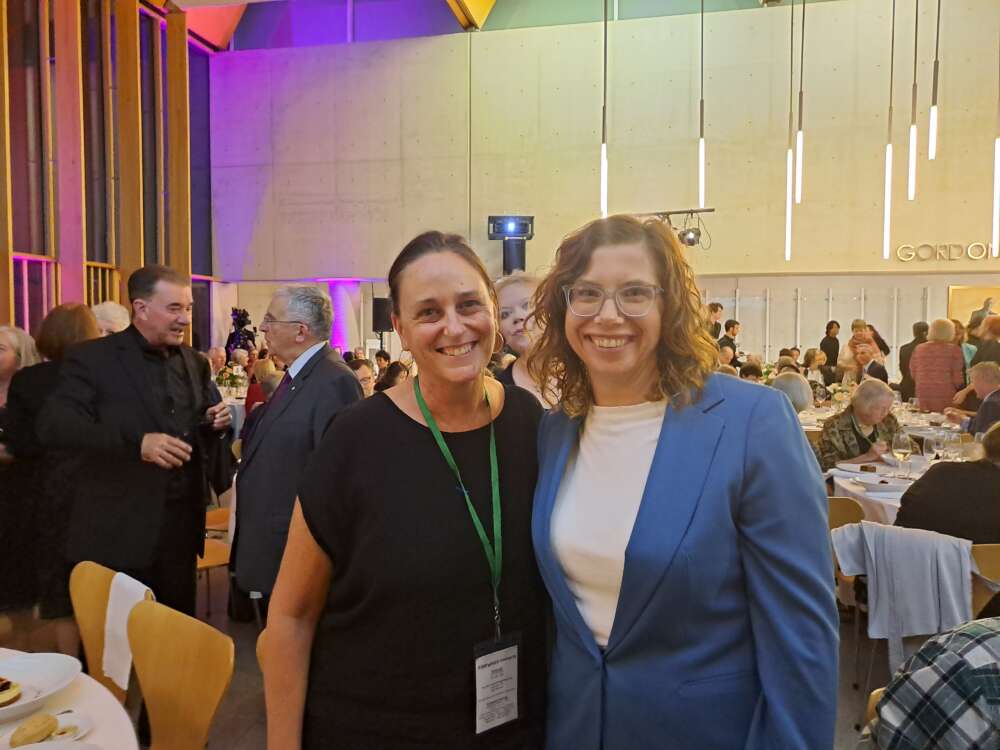The bittersweet taste of excitement and deep grief combined as my daughter and I sat in the front row of the House of Representatives’ special visitors gallery for a statement on the 10th anniversary of the National Apology for Forced Adoptions.
We were excited to be in such a grand building where decisions about the country are debated, eyeballing the likes of Anthony Albanese, Peter Dutton and Tanya Plibersek but grieving too.
The reason for our invitation being I am a survivor of the baby scoop practices of the forced adoption era.
I am one of an estimated 250,000 Australians forcibly removed as babies from our first families between the 1940s to the 1980s.
What is forced adoption?
The previous night we attended a commemorative dinner where the Minister for Social Services, the Honourable Amanda Rishworth, described forced adoption as ‘a shameful chapter in our history’ when the practice of ‘shaming, berating and coercing the mothers’ was the norm.
The Minister told the hundreds of affected people in the room that one of the drivers of forced adoption were ‘the supposed societal idea that children must at all costs must be raised by married parents: a mother and a father’.

Ms Rishworth’s words echoed Julia Gillard’s National Apology for Forced Adoption ten years earlier when she described forced adoption as “reprehensible, inexcusable, immoral and above all illegal”.
We have had three formal apologies in Australia. One to the Stolen Generations, one to Forgotten Australians and Child Migrants and the National Apology for Forced Adoptions.
So why are so many Australians unaware of what happened to mothers and babies in our not so distant history?
On the morning of the day of the historical apology a leadership spill against Julia Gillard was announced.
The media coverage of the day was consumed by the spill and the apology, which meant so much to so many, got pushed out of the news cycle.
When is your birthday not your birthday?

All of the stories I heard on my Canberra trip represented just a drop of lived experiences in an ocean filled with tears of grief.
From the mother who revealed to Ms Rishworth that she had lost not one but two babies to forced adoption, to the man who discovered only recently that the majority of details in his original birth certificate were falsified, even his birthday. His only means of finding his mother became through DNA.
There was an adopted now middle-aged man who had met and was in regular contact with his first mother and siblings but could not bring himself to tell his adopted family because he was unsure of how they would take the news.
And then there’s the beginning of my story as a second generation Forgotten Australian born to my first mother, a young person and foster child, before I was placed briefly into Saint Anthony’s Children’s Home in Croydon.
It was after that I was adopted into a white nuclear family with a married couple who gave me a different life.
Not necessarily a better one.
More on adoption in Australia and NZ
If you’d like to read about why I’m reclaiming my birth name check out this ABC Everyday article ‘Adoptee Sandra D Moon is taking back her birth name and reclaiming her lost identity‘.
Do you want to take a deeper dive into my personal journey as an adoptee? Get into this article from our archives: ‘Grief and forced adoption’.
And if you’re the ‘pop on a podcast’ type like me, how about listening to this episode where I’m featured on The Adoption Chronicles.
And lastly if you are after an exquisite read authored by an adopted person you must read Tree of Strangers by Barbara Sumner.
